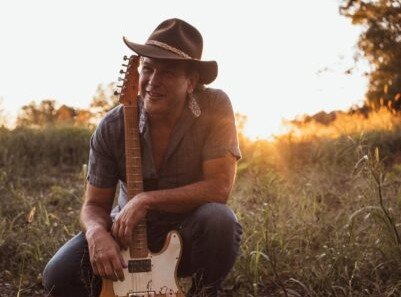Deb’s Psychedelic Saturdays – On Becoming a Hippie (Chapter 36) – Learning to Become a Teacher
By Deb Cavanaugh on November 13, 2020
 The summer of 1983 ended too soon for us, but we were becoming well-established in this new home. I had enrolled Jessie in The Free School and, with the start of the school year, I was invited to spend as much time as I liked volunteering there with Justin in tow. Although, I had done some home schooling and taught private piano and voice lessons, I had never taught in a school. This was a different school that focused on student-led education and emotional development. It was founded in 1969 and is the oldest inner-city independent alternative school in the United States. The school was tuition-based but was mostly supported by rentals. The school had bought brownstones that needed to be rehabbed at extremely low prices, then fixed them up and sold a few to teachers then rented the rest for reasonable prices. I was fascinated by this unusual model. I mostly stayed in the upstairs part of the school which housed the kindergarten and preschool. I didn’t want to encroach on Jessie’s experience, a decision I came to regret, but I also had my three-year old with me who wasn’t formally enrolled yet as a student.
The summer of 1983 ended too soon for us, but we were becoming well-established in this new home. I had enrolled Jessie in The Free School and, with the start of the school year, I was invited to spend as much time as I liked volunteering there with Justin in tow. Although, I had done some home schooling and taught private piano and voice lessons, I had never taught in a school. This was a different school that focused on student-led education and emotional development. It was founded in 1969 and is the oldest inner-city independent alternative school in the United States. The school was tuition-based but was mostly supported by rentals. The school had bought brownstones that needed to be rehabbed at extremely low prices, then fixed them up and sold a few to teachers then rented the rest for reasonable prices. I was fascinated by this unusual model. I mostly stayed in the upstairs part of the school which housed the kindergarten and preschool. I didn’t want to encroach on Jessie’s experience, a decision I came to regret, but I also had my three-year old with me who wasn’t formally enrolled yet as a student.
The school tuition was on a sliding scale with no one turned away for lack of funds. This meant that the demographics of the students was diverse, which I liked. I wanted my children to be exposed to other children with many different lifestyles, economic backgrounds and belief systems. Unfortunately, like everything, the school had it’s good and bad qualities, and the bad ones were hidden from me for the most part. However, they were looking for teachers and, if I volunteered a couple of days a week for this school year, I could start working there the following year with both of my children attending. They also offered to let Justin attend the rest of that year. How could I refuse? I’d been exposed to alternative education in San Francisco and in Oregon and loved the concepts. I knew I couldn’t afford college and also knew that it would be impossible to go to school while my children were so young. Although I never thought I would end up being a teacher, I was drawn to it and agreed to their offer.
The tactics of the director and founder were, to put it kindly, unorthodox. There were things done there that should have been reported and certainly should have been stopped, but I wasn’t aware of them at the time. Unfortunately, Jessie experienced some of this and was cautioned to not tell anyone or it would get worse, so she kept quiet until she graduated many years later. The side of the school that I was allowed to see was one in which the children learned through play. They learned history through drama and games such as role playing, being Marco Polo and exploring Asia and the Silk Road. They learned math by playing “Math Baseball.” They learned science through experiments and field trips. They learned geography by making artistic maps and going on trips to places around the country. They also learned independence and self-sufficiency by being out in the world but also through calling and attending “council meetings.”
 Council meetings were one of the most important parts of the school curriculum. If anyone had an issue with any other person, whether another student or a teacher, they could call a council meeting which was run according to Robert’s Rule of Orders and chaired by a student who was elected by a majority. The teachers tried to stay out of the negotiations as much as possible only speaking up to get things moving along or to relay their own experiences. Sometimes, if the meeting seemed stuck, teachers would suggest something outlandish to heat things up.
Council meetings were one of the most important parts of the school curriculum. If anyone had an issue with any other person, whether another student or a teacher, they could call a council meeting which was run according to Robert’s Rule of Orders and chaired by a student who was elected by a majority. The teachers tried to stay out of the negotiations as much as possible only speaking up to get things moving along or to relay their own experiences. Sometimes, if the meeting seemed stuck, teachers would suggest something outlandish to heat things up.
It was a powerful process. When someone called one of these meetings, everything stopped. Every student and teacher were required to attend, and the meetings would sometimes go on for days until the problem was solved. With encouragement from the teachers, the students often came up with unorthodox solutions. If a child were being left out, the students doing the leaving out might have to spend a week being alone. Or maybe the students doing the leaving out were paired up with the one left out, having to spend every minute together to get to know each other better. If two students were fighting, they were often paired with each other or a supervised wrestling match was set up. Supervised wrestling was a big part of the curriculum with strict rules of engagement. If mandated by a council meeting, the entire school turned out for these events. The belief was that these kids needed to learn to work out their issues rather than being talked out of it. We all knew that unless it was resolved in school, it was likely to be taken to the streets where there was no supervision. There were kids of all kinds attending school there including some very damaged kids from dysfunctional and violent homes who were violent themselves and tended to gravitate towards gangs and a life of crime.
I learned how to restrain kids in a way that protected both them and me. I learned how to supervise fair fights and wrestling matches. I learned how to encourage the release of emotions in a safe way, and I saw these tactics work to help kids be able to learn and grow and survive their trauma. I also learned how to watch for signs of abuse and deal with aggressive parents. But most of all, I learned how to teach children effectively. It was better than any classes I had taken before or since. In working there, I became a real teacher and found an inner strength I didn’t know I had. Much later on I realized that all of the teachers were becoming educated as well as educating others. As much as I loved my work there, it was difficult working with wild, sometimes out-of-control kids and then going home with my own kids. So, I started taking advantage of the couple of school days I was allowed to be home.
J essie had acclimated to the city and, since we lived only a few blocks away from the school, started walking her brother home in the afternoons that I didn’t work. Justin, having always been a handful, and never listened to her, started running off during these walks home and doing other dangerous things that scared her. She called a council meeting at which they decided that she would walk him home on a leash. It sounded like a good solution to everyone until he started crawling on all fours, barking like a dog and embarrassing her, so that was the end of that responsibility. I didn’t really mind too much, and it gave her more freedom to do other things on those days.
essie had acclimated to the city and, since we lived only a few blocks away from the school, started walking her brother home in the afternoons that I didn’t work. Justin, having always been a handful, and never listened to her, started running off during these walks home and doing other dangerous things that scared her. She called a council meeting at which they decided that she would walk him home on a leash. It sounded like a good solution to everyone until he started crawling on all fours, barking like a dog and embarrassing her, so that was the end of that responsibility. I didn’t really mind too much, and it gave her more freedom to do other things on those days.
The school community was very insular with the other teachers’ kids not very welcoming to newcomers and the teachers too close to the situation to see what was going on, so Jessie struggled with her friendships there. Luckily, she made another friend in the neighborhood in addition to the girl who lived on the first floor of our building. Amber was a couple of years older than Jessie, but they hit it off immediately. I even got to know and liked her mother. Kathleen was a radical feminist who informed me that if she had known that she was having a boy, she would have aborted the pregnancy. I was horrified. I’d known lots of radical feminists when I lived on the west coast, but no one had ever expressed this to me before. I knew better than to try to change her mind and tolerated her views as best I could. However, by the end of the first month that we knew each other, she had turned her views around because Justin won her over. He was the first boy she ever liked. This surprised me because he was a wild child, but he was also polite and a lot of fun to be around.
Annette and Chris, some of the first friends we met in the neighborhood, lived next door to Kathleen. Jessie soon started babysitting for their young daughter and also took piano lessons from Annette. When that wasn’t happening, Annette often drove me around town showing me how to find my way, teaching me shortcuts and filling me in on bits of history. I had also started hanging out with one of the Rok Against Reganomix families who had children around the same age as ours. Now there were parties and potlucks again. We were definitely settling in, and I started feeling as though I could stay here. I was making friends and was learning how to be an educator.
Paul was also making friends through his job as well as meeting other musicians. We were both involved with Rok Against Reganomix, organizing concerts at local clubs to fundraise for the big summer concert. We had also found the Half Moon Café which was quickly becoming our home venue. It was only a few blocks away and was open to booking us as a duo and with our band. We played there at least once a month, packing the place with folks congregating on the sidewalk outside when it was too crowded to go inside. More and more, it was beginning to look like we could actually be happy here. But Paul was never happy unless he was traveling and started talking about another move. I reminded him that we had promised Jessie we would stay here while she was still in school, allowing her to settle, and he wasn’t happy. His wanderlust was not giving up, and our arguments started escalating again. Luckily, our shared music always brought us back together. We played the Chateau Lounge one last time before it was torn down for urban redevelopment just before the bass player and drummer, who were also good friends, moved on to other projects.



 RadioRadioX
RadioRadioX